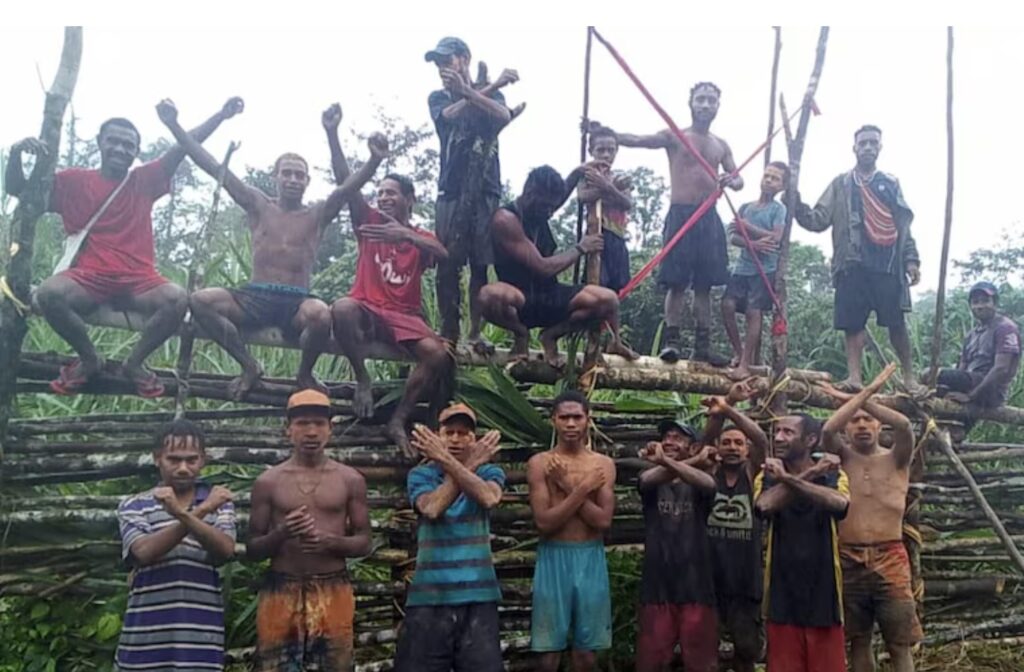The illegal blockade of the Kokoda Trail without warning by a dissident group of Port Moresby based landowners has created havoc for Kokoda tourism during the peak 2024 trekking period.
The blockade was designed to hold trekkers hostage to their crude ransom demands for money they may or may not be entitled to.
The feeble response from the Waigani leadership class has done little to reassure villagers that their primary role is to protect them and their livelihoods.
Those livelihoods have just been smashed by the greed of the blockaders and the quivering indecision of leaders too afraid to send a message that lawless actions which deprive people of their incomes will not be tolerated.
Some basic research would reveal that there is no evidence to support the demands of dissidents regarding the payouts from the cancellation of the Kodu mining licence in 2010. No documents have been produced to verify how much was paid and how much was owing.
The identities of Nauro landowners has not been verified – one of the chief rabble rousers has Madang parentage.
We do not know the outcomes of the initial compensation payout of somewhere between K6-10 million. Did it benefit the Nauro landowners or was it siphoned off by corrupt officials and con-men?
There is no dispute that Nauro landowners deserve to be compensated for the loss of potential earnings from the closure of the mine which was caused by the intervention of the Australian government in 2010.
We now know they were victims of a standoff between an arrogant mining company and an ignorant Canberra Government.
Their loss has been compounded by the failure of the Canberra funded ‘Kokoda Initiative’ to deliver any benefits from their World Heritage folly and their mismanagement of pilgrimage tourism opportunities.
In hindsight, Frontier Resources should have been allowed to proceed with the mining of the $4 billion (K10 billion) gold and copper deposit from Mt Bini with appropriate environmental protection.
The mine, adjacent to the southern section of the Trail, would have delivered an estimated $100 million (K234 million) in community benefits over its projected 10-year life which would have expired in 2019.
With proper management this would have funded a Military Heritage Master Plan and interpretive memorials at every site across the Kokoda Trail along with schools and health centres to meet the immediate and future needs of village communities.
The economic future of traditional landowner communities based on pilgrimage tourism would have been assured.
Government officials can no longer bury their heads in the sand over the need to compensate all landowner communities across the Trail for their economic loss from the closure of the Kodu goldmine and for the loss of earnings from Kokoda tourism as a result of their mismanagement which has seen trekker numbers fall by 46% since Canberra took control of the Trail under a Joint Agreement signed in 2008.
It’s now time for them to step up to the plate and order an immediate end to the blockade and provide an assurance to the Kodu landowners that whatever agreement was approved by NEC in 2010 will be honoured and responsibility for the management of the Kokoda Trail will be transferred to TPA so it can be managed as a tourism enterprise for their future economic benefit.






In 2008 I remember seeing a small area of forest being cleared, west of Haus Banana on the Kokoda Trail. My Guides said it was the site of exploration work for a possible gold mine. An Australian man and his adult son had an exploration licence, about to expire, and wanted to renew it. They arranged for Nauro villagers to block the Trail, with prepared protest signs. The problem was that spoil from the site would contaminate Ofi Creek and Port Moresby’s water catchment area. I understand that both the Australian and PNG Prime Ministers decided to cancel the Australian father & son’s exploration licence, given that payable gold had not been found; the risk of contamination of Port Moresby’s water supply was too great; and that no compensation was required. If compensation monies have been paid to certain landholders, it seems reasonable that claimants and government authorities should have their accounts audited for public scrutiny.